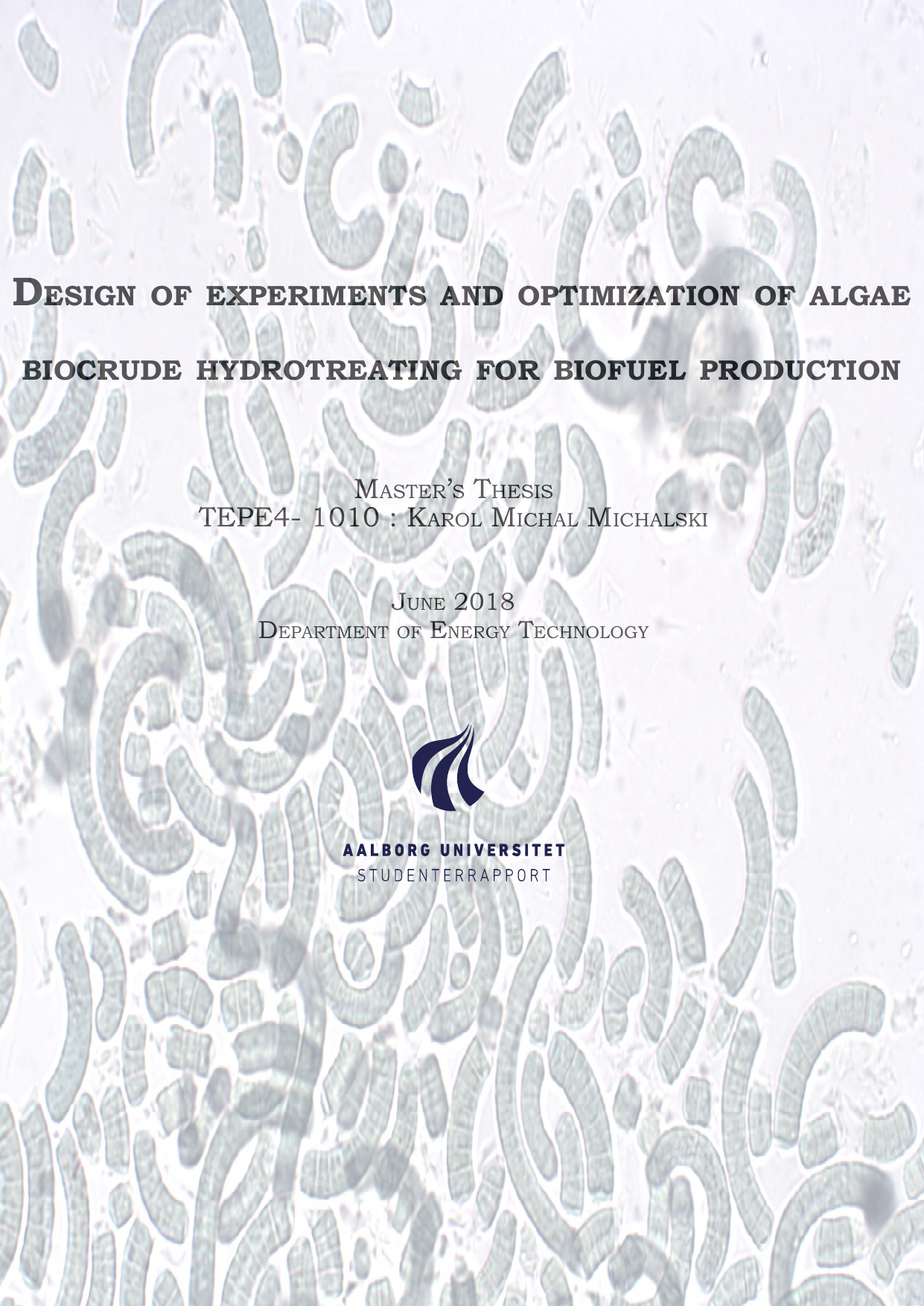
Design of experiments and optimization of algae bio-crude hydrotreating for biofuel production
Author
Term
4. term
Education
Publication year
2018
Submitted on
2018-05-31
Pages
72
Abstract
The development of advanced biofuels production obtained from non-food biomass still faces challenges that impede their commercialization. Biocrude, as the product from thermochemical conversion of biomass has to be considered as an intermediate requiring further upgrading to obtain drop-in fuel properties. This study presents a set of two-level factorial experiments, where hydrotreating of bio-crude, obtained from HTL of micro-algae feedstock was evaluated. This was followed by an analysis of the effects of operational conditions on hydrodeoxygenation (HDO), hydrodenitrogenation (HDN) and hydrogen consumption as response variables. It was found that temperature is the main driver for oxygen removal, whereas nitrogen removal also relies on hydrogen pressure and temperature-pressure interaction, similarly as hydrogen consumption. For an optimized conditions experiment (375 \textdegree C, 70 bar, 3h) , full deoxygenation was achieved, whereas nitrogen level remained at around 3 \%, which corresponds to 60\% reduction. However, GC-MS analysis revealed that nitrogen is contained in higher molecular weight compounds, which according to simulated distillation (Sim-dis) accounts for approximately 1/3 of the total oil fraction. Therefore, light fractions such as gasoline, jet or diesel fuel may be expected to be nitrogen-free. As a conclusion, influential factors for hydrotreating of algae bio-crude were identified, but further investigation with a greater number of experiments is required in order to understand the process in detail.
Keywords
Biocrude ; Biofuel ; Hydroprocessing ; Algae ; HTL ; Catalytic upgrading
Documents
